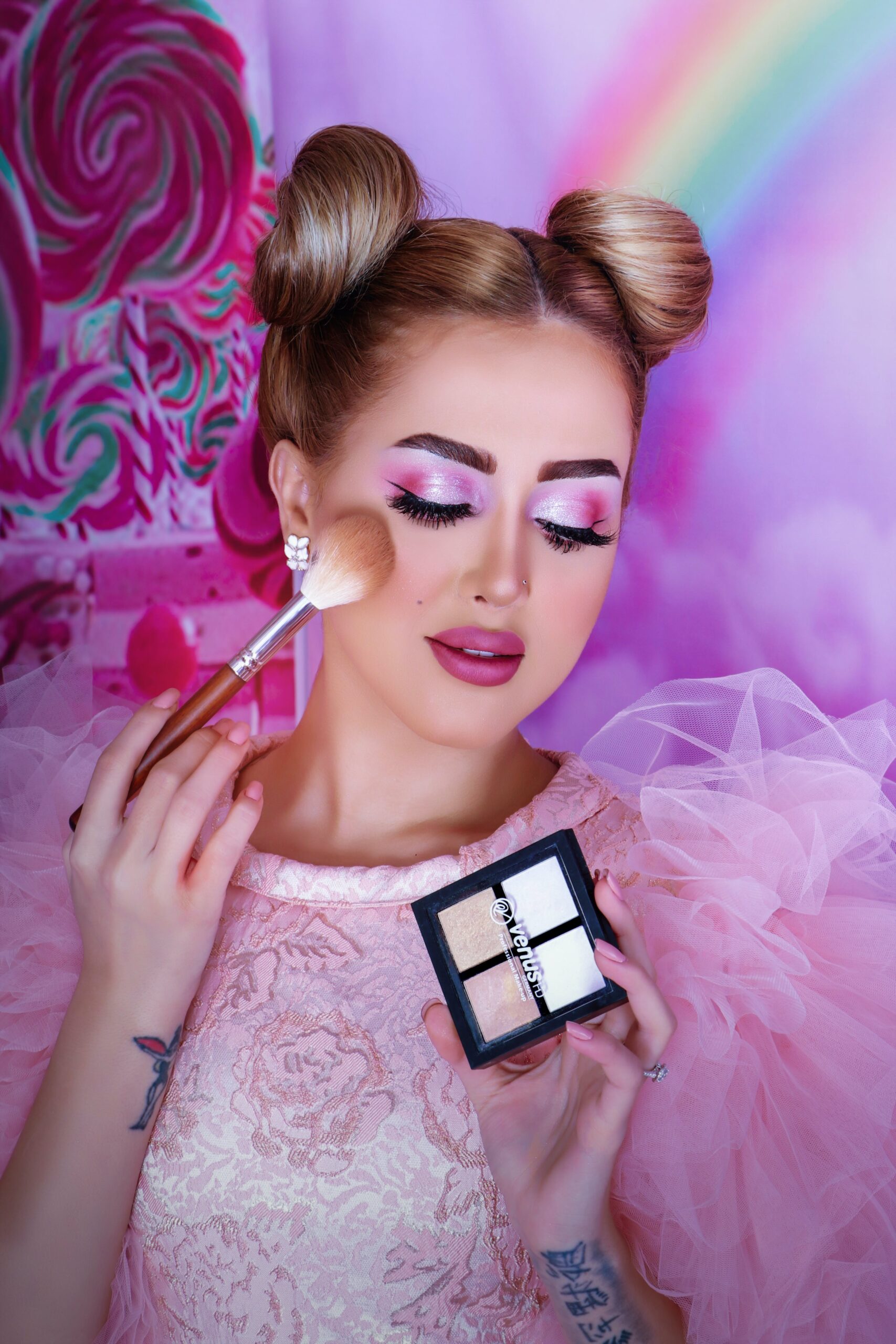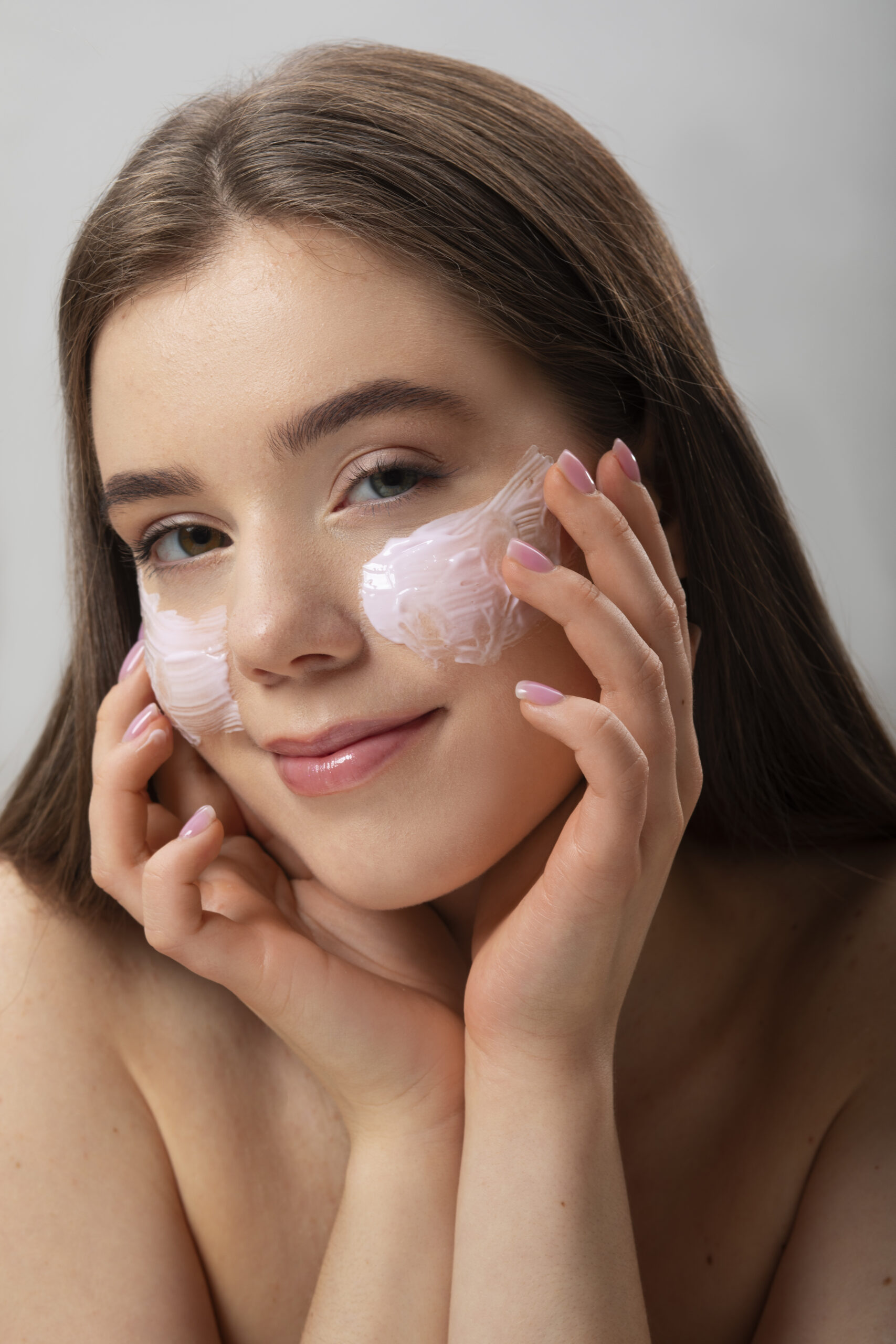If you have oily skin, you’re no stranger to the constant struggle with shine, enlarged pores, and breakouts. But fear not, because with the right skincare routine, you can balance your skin’s natural oil production and enjoy a radiant complexion. In this comprehensive 2000-word guide, we will explore the best practices for caring for oily skin, from essential daily steps to advanced techniques that can help you put your best face forward.
Understanding Oily Skin
Before we dive into the skincare routine, let’s get a clear understanding of what oily skin entails:
1. Excess Sebum Production: Oily skin is characterized by the overproduction of sebum, a natural oil produced by the sebaceous glands in the skin. This excess oil can lead to a shiny appearance.
2. Enlarged Pores: Due to the increased oil production, pores may appear larger and more prominent.
3. Acne and Blackheads: Oily skin is more prone to acne breakouts and blackheads as the excess oil can clog pores.
Picture Courtesty: Freepik
4. Makeup Challenges: Makeup may not stay in place as long, and you may need to touch up more frequently to combat shine.
5. Genetics and Hormones: Genetics and hormonal changes can play a significant role in oily skin, making it a common issue for many individuals.
Now that we understand the characteristics of oily skin, let’s delve into the ideal skincare routine to help you manage it effectively.
Morning Skincare Routine for Oily Skin
1. Cleansing
Start your morning skincare routine with a gentle, foaming, or gel-based cleanser specifically designed for oily skin. Cleansing helps remove excess oil, sweat, and impurities that accumulate overnight. Massage the cleanser onto your face in circular motions, then rinse thoroughly with lukewarm water.
Picture Courtesy: Freepik
2. Toning
A toner formulated for oily skin can help balance your skin’s pH and minimize oil production. Apply the toner to a cotton pad and gently swipe it over your face, avoiding the eye area.
3. Serum
Serums are concentrated products that can target specific skin concerns. For oily skin, look for a serum containing salicylic acid, niacinamide, or hyaluronic acid. Salicylic acid helps unclog pores and prevent breakouts, while niacinamide can regulate oil production and minimize redness. Apply a small amount of serum to your face and neck, patting it in until absorbed.
4. Lightweight Moisturizer
Contrary to popular belief, oily skin still needs moisturization. Opt for a lightweight, oil-free, and non-comedogenic (won’t clog pores) moisturizer to provide hydration without adding extra oil. Apply it evenly to your face and neck.
5. Sunscreen
Sunscreen is a must for all skin types, including oily skin. Choose a broad-spectrum sunscreen with an SPF of 30 or higher to protect your skin from harmful UV rays. Apply it generously, even on cloudy days, and reapply every two hours if you’ll be outdoors.
Picture Courtesy: Freepik
Evening Skincare Routine for Oily Skin
1. Makeup Removal
If you wear makeup, begin your evening routine by thoroughly removing it. Use a gentle makeup remover or micellar water to dissolve makeup, followed by a second cleanse with your regular gentle cleanser.
2. Cleansing
Follow up with your cleanser to ensure your skin is clean before applying your nighttime products. Cleansing helps remove any remaining impurities and prepares your skin for the next steps.
3. Exfoliation (2-3 Times a Week)
Exfoliation is crucial for oily skin to remove dead skin cells and prevent clogged pores. Use a mild exfoliant with salicylic acid (a beta hydroxy acid) two to three times a week. Avoid over-exfoliating, as it can lead to dryness and sensitivity.
Picture Courtesy: Freepik
4. Serum
In the evening, you can continue using the same serum as in your morning routine, or opt for one with specific nighttime benefits. Retinol or retinoids can be excellent choices for addressing signs of aging and controlling oil production. Apply a small amount of serum to your face and neck, patting it in until absorbed.
Picture Courtesy: Freepik
5. Moisturizer
Apply a lightweight, oil-free moisturizer to maintain hydration throughout the night. Night creams formulated for oily skin often contain ingredients like glycolic acid or antioxidants, which can help control oil production and provide additional benefits.
6. Spot Treatment (As Needed)
If you have active breakouts, use a spot treatment containing benzoyl peroxide or salicylic acid to target those areas specifically.
7. Occasional Masks (1-2 Times a Week)
Treat your skin to a mask once or twice a week, depending on your skin’s needs. Options include clay masks to purify the skin, exfoliating masks to remove dead skin cells, or sheet masks for added hydration.
Picture Courtesy: Freepik
Advanced Skincare Tips for Oily Skin
1. Professional Treatments
Consider professional treatments like chemical peels, microdermabrasion, or laser therapy to manage oiliness, reduce acne scars, and improve skin texture.
Picture Courtesy: Freepik
2. Retinoids
Retinoids, like prescription-strength tretinoin, can be highly effective for oily skin. Consult a dermatologist to discuss the appropriate retinoid for your skin.
3. Diet and Lifestyle
Pay attention to your diet and lifestyle choices, as they can impact your skin. Limiting dairy, sugary, and high-glycemic foods, staying hydrated, and managing stress can help control oil production.
Picture Courtesy: Freepik
4. Oil-Blotting Sheets
Carry oil-blotting sheets with you to absorb excess oil throughout the day without disrupting your makeup.
5. Consistent Hydration
Drinking enough water is essential for all skin types, including oily skin. Proper hydration can help regulate oil production.
Know When to Consult a Dermatologist
If you have persistent acne or other skin concerns, consult a dermatologist. They can recommend prescription-strength products, such as oral medications or topical treatments, to address your specific issues.
Managing oily skin can be a challenge, but with the right skincare routine and a few lifestyle adjustments, you can keep shine and breakouts under control while enjoying a radiant complexion. Consistency is key, and it may take some time to find the perfect products and routine for your unique skin. If you encounter persistent issues, don’t hesitate to consult a dermatologist for personalized guidance and solutions. With proper care and attention, you can have balanced and beautiful skin that defies the challenges of oily skin.

Shiwani Jaiswal is a literature graduate with an innate passion for creativity and an unwavering love for style. She curates a unique narrative that bridges classic elegance and contemporary trends. Her perceptive insights and knack for uncovering hidden gems in the fashion landscape make her a sought-after voice. From haute couture to street fashion, Jaiswal’s articles promise an engaging exploration of diverse styles, along with a glimpse into the cultural influences that shape our wardrobes. Let us embark on a sartorial journey with Jaiswal as she paints the vivid tapestry of fashion’s ever-evolving realm.













